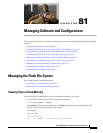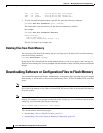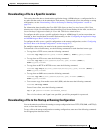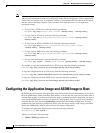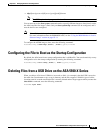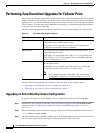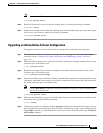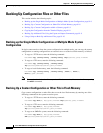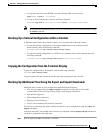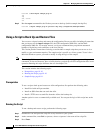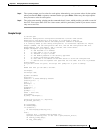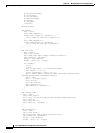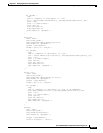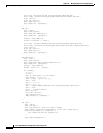
81-7
Cisco ASA 5500 Series Configuration Guide using the CLI
Chapter 81 Managing Software and Configurations
Performing Zero Downtime Upgrades for Failover Pairs
Note Use the show failover command to verify that the standby unit is in the Standby Ready state.
active# no failover active
Step 4 Reload the former active unit (now the new standby unit) by entering the following command:
newstandby# reload
Step 5 When the new standby unit has finished reloading and is in the Standby Ready state, return the original
active unit to active status by entering the following command:
newstandby# failover active
Upgrading an Active/Active Failover Configuration
To upgrade two units in an Active/Active failover configuration, perform the following steps:
Step 1 Download the new software to both units, and specify the new image to load with the boot system
command (see the “Configuring the Application Image and ASDM Image to Boot” section on
page 81-4).
Step 2 Make both failover groups active on the primary unit by entering the following command in the system
execution space of the primary unit:
primary# failover active
Step 3 Reload the secondary unit to boot the new image by entering the following command in the system
execution space of the primary unit:
primary# failover reload-standby
Step 4 When the secondary unit has finished reloading, and both failover groups are in the Standby Ready state
on that unit, make both failover groups active on the secondary unit by using the following command in
the system execution space of the primary unit:
Note Use the show failover command to verify that both failover groups are in the Standby Ready
state on the secondary unit.
primary# no failover active
Step 5 Make sure that both failover groups are in the Standby Ready state on the primary unit, and then reload
the primary unit using the following command:
primary# reload
Step 6 If the failover groups are configured with the preempt command, they automatically become active on
their designated unit after the preempt delay has passed. If the failover groups are not configured with
the preempt command, you can return them to active status on their designated units using the failover
active group command.





